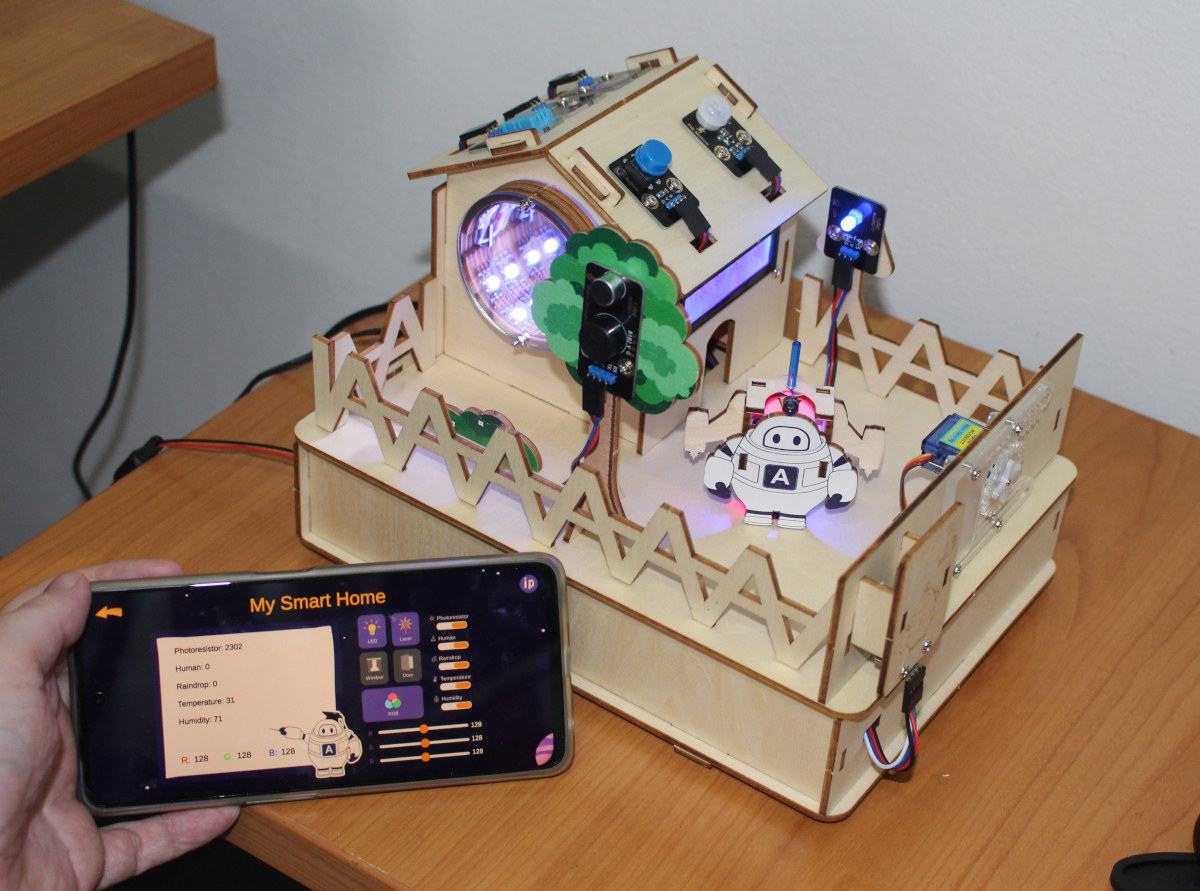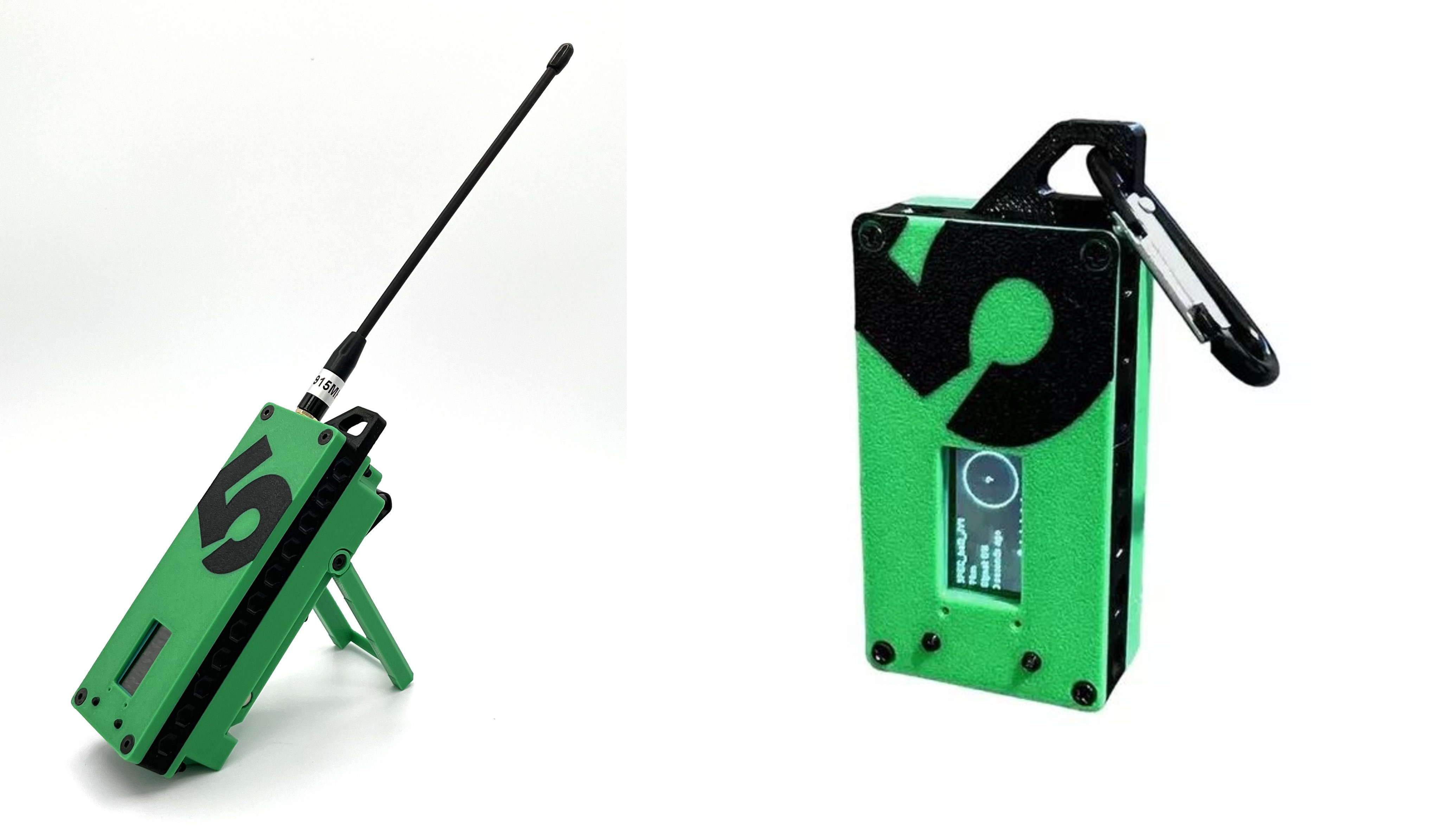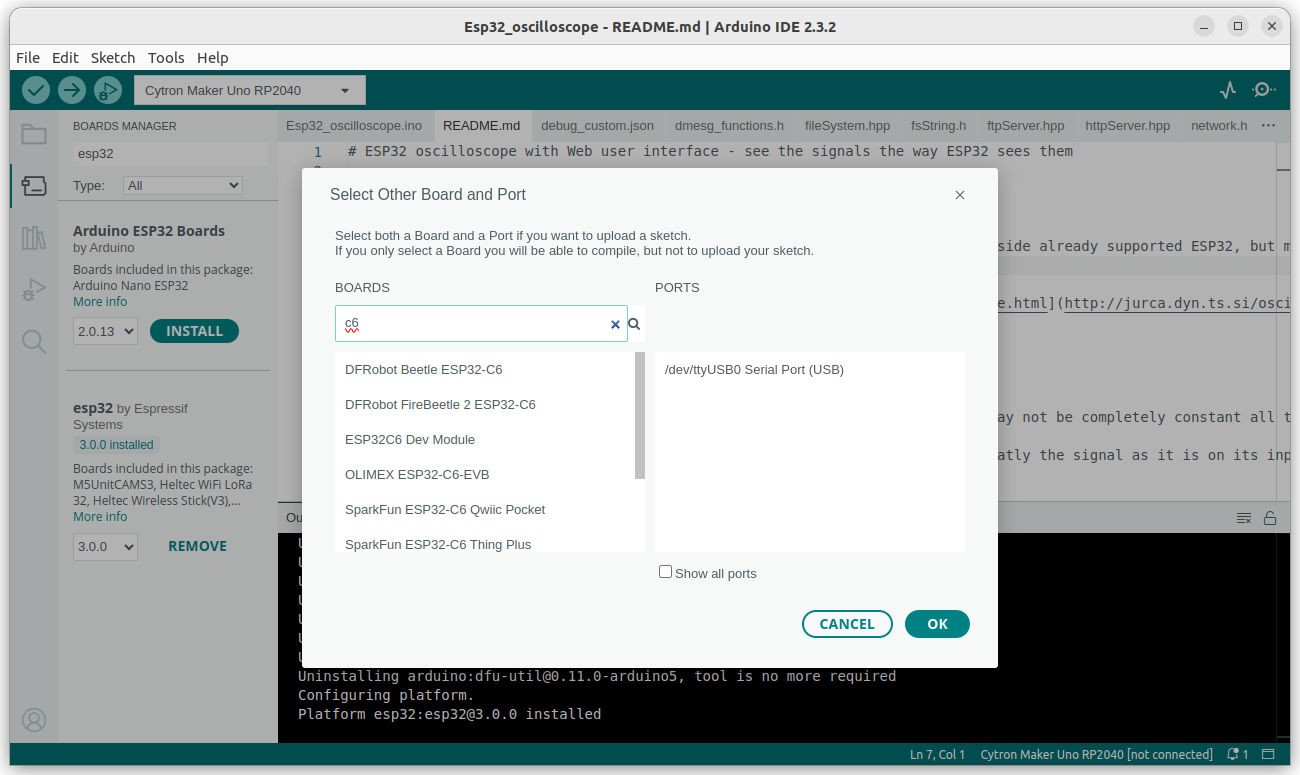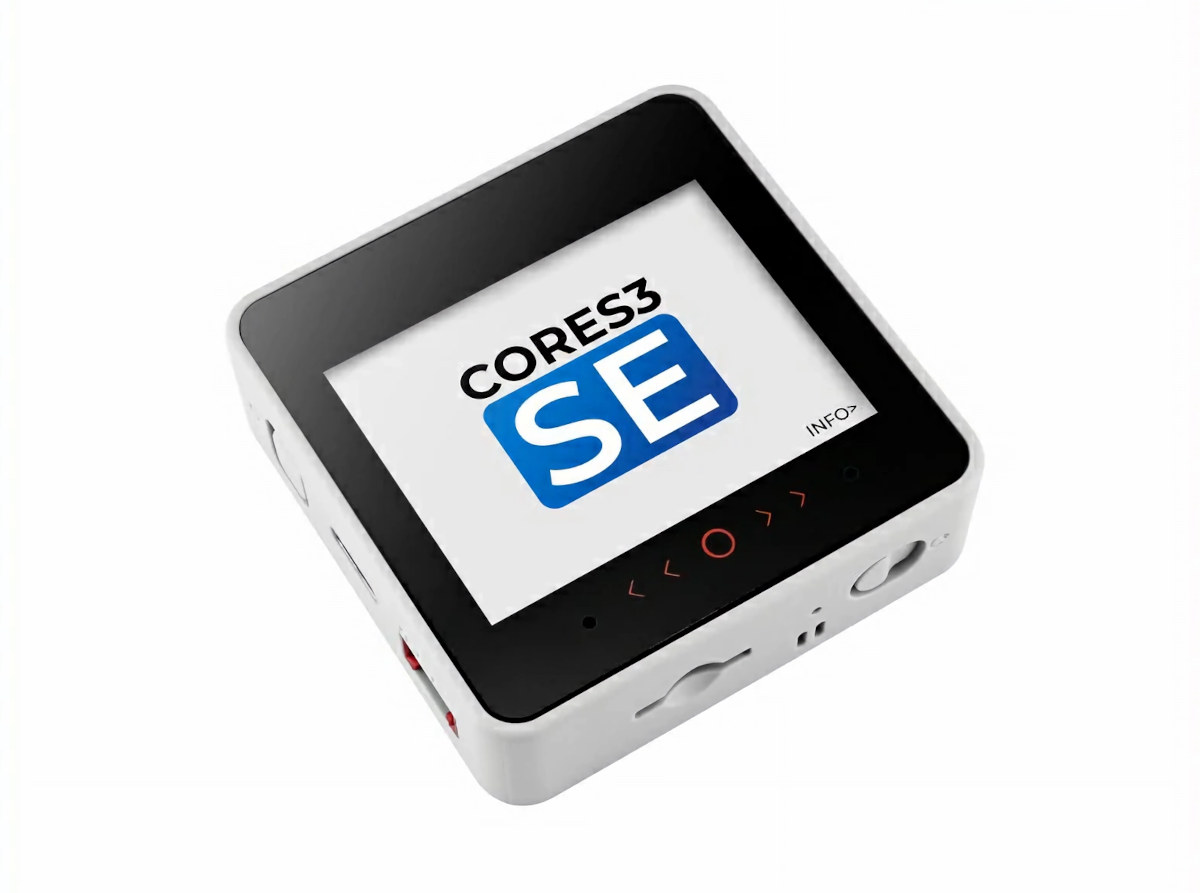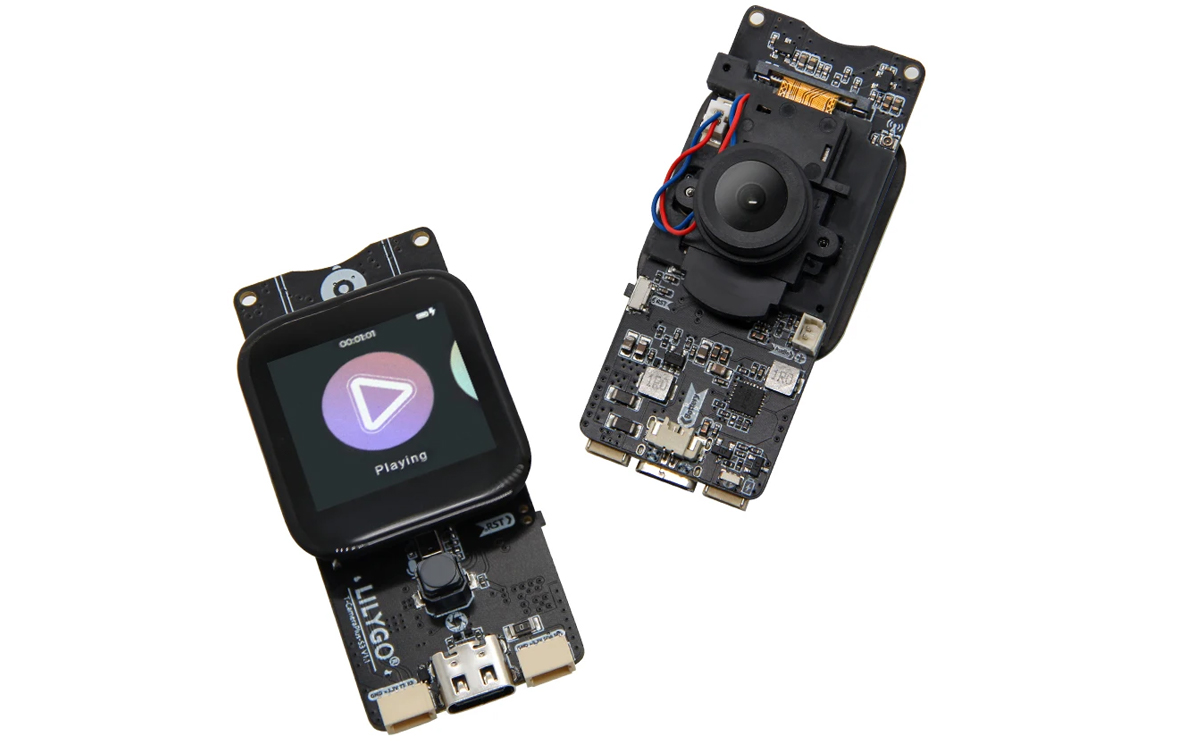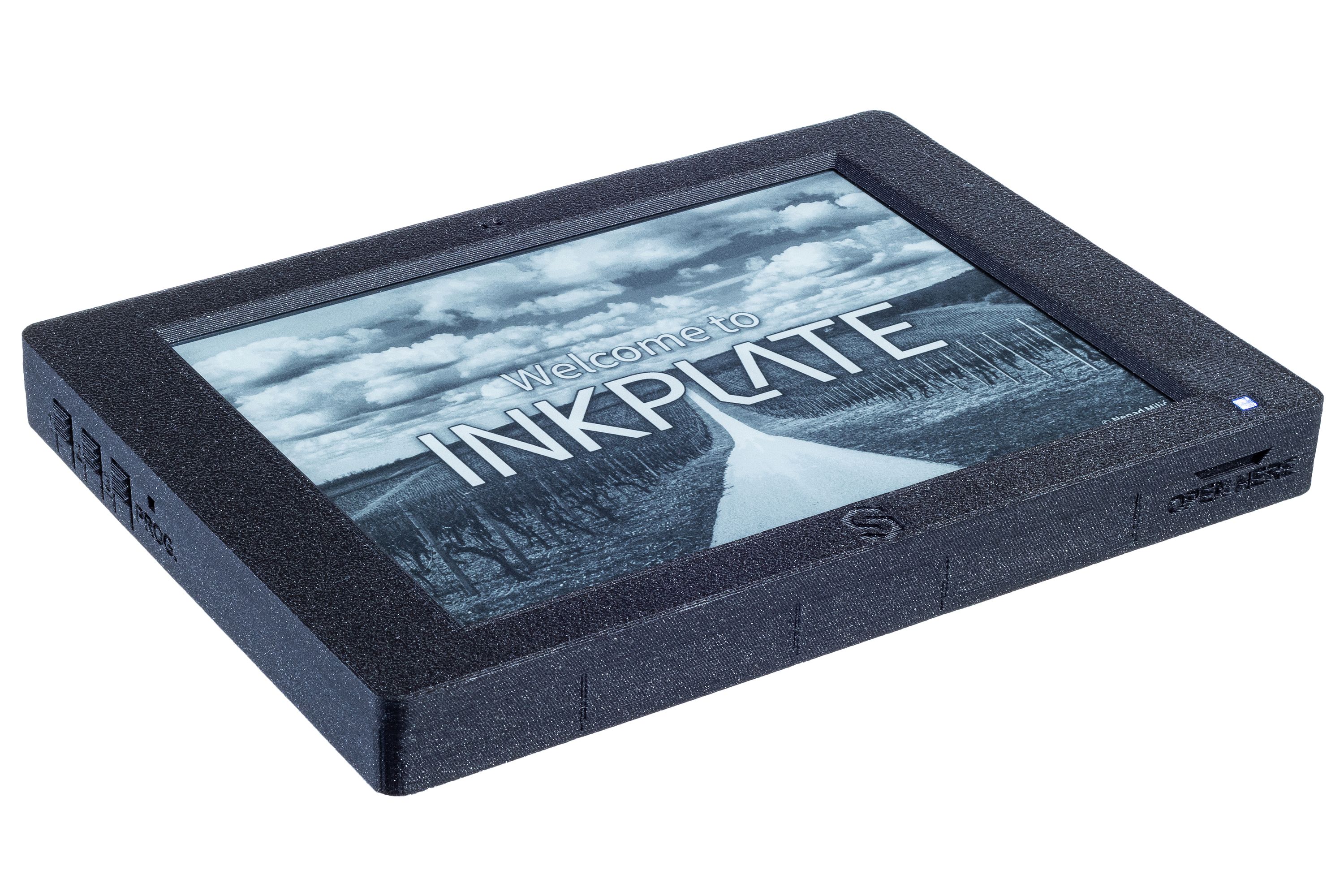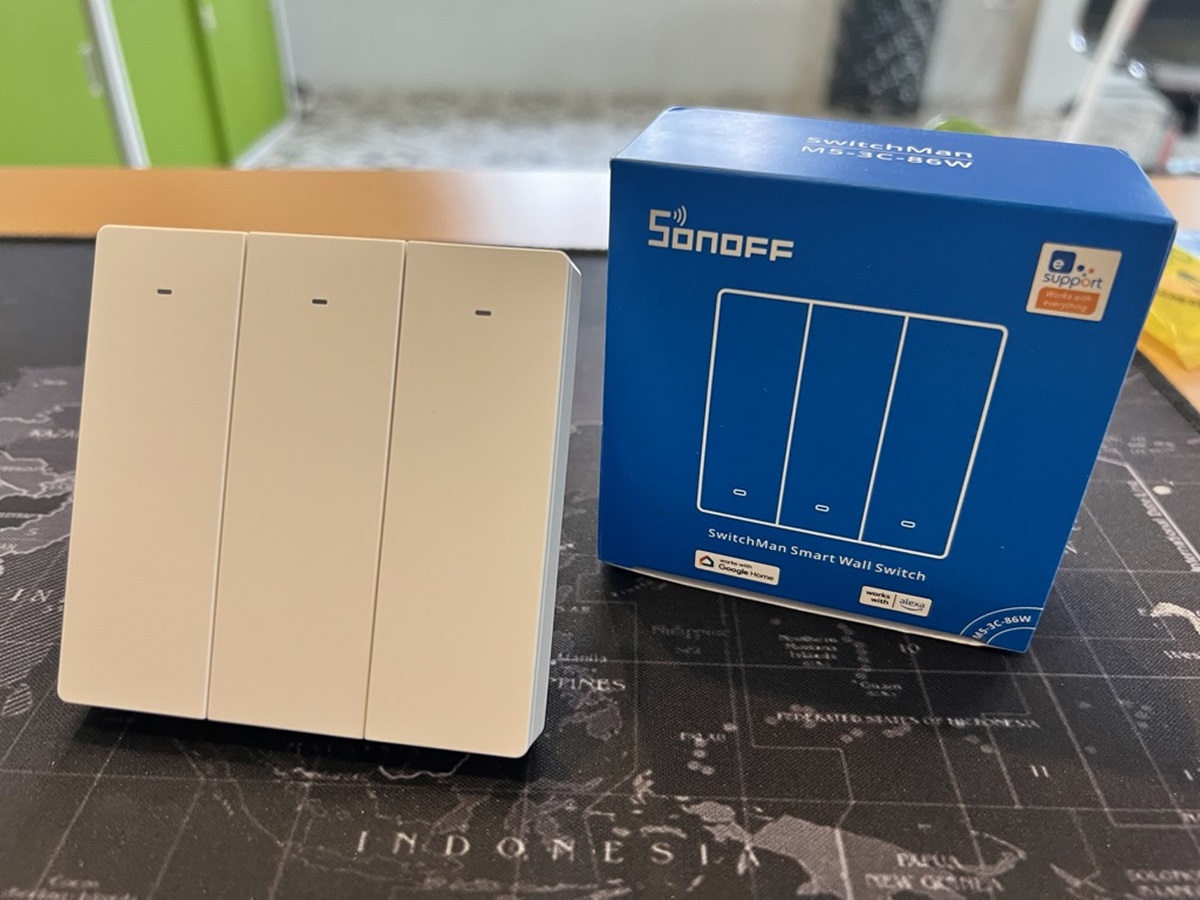ACEBOTT QE007 ESP32-based Smart Home Starter Kit is a STEAM (Science, Technology, Engineering, Arts, and Maths) education platform that involves story reading, assembling a wooden house with various electronics sensors wired to an ESP32 board, and learning about electronics concepts (such as voltage and current) and coding with the Arduino IDE through an 18 lesson course. ACEBOTT has various STEAM education kits, and the company sent us the QE007 “IoT Smart Home Starter Kit” for evaluation and review. So I’ll go through an unboxing, report my experience with the assembly process, and the Arduino tutorials by going through some of the eighteen lessons. ACEBOTT QE007 unboxing The kit comes in a nice-looking retail that reads “ACEBOTT Explorer Series QE007” and “ACEBOTT IOT Smart Home Started Kit”. The front of the package also highlights its a STEAM education kit designed for 8+ years old kids. The bottom side gives the backstory […]
The S5 Trekker is a compact Meshtastic communication device for hikers and preppers
The S5 Trekker Bravo and the S5 Trekker Mini are two Meshtastic-enabled radios designed by SpecFive LLC, a team of engineers based in the United States. Both devices are based on the Heltec Wireless Tracker from Heltec Automation. The Wireless Tracker integrates Espressif’s ESP32-S3 system-on-a-chip, a 160 x 80 TFT LCD, a SemTech SX1262 LoRa chip, and a Unicore UC6580 GNSS chip. The MiniTrekker is much lighter than the Trekker Bravo and features a built-in attachment hook for connecting it with other gear. Both radios are built to be durable enough to resist the rigors of outdoor exploration. They come pre-flashed with the open-source Meshtastic software and are ready to be used out of the box. The S5 Trekkers are intended to be used when hiking, trekking, and partaking in other outdoor activities that take one away off the well-trodden path. It is also useful for setting up a reliable […]
Espressif releases Arduino ESP32 Core 3.0.0, but PlatformIO support is in doubt
We previously noted the ESP32 Arduino Core 3.0.0 Alpha release added support for ESP32-C6 and ESP32-H2 among other changes. The good news is that Arduino ESP32 Core 3.0.0 is now considered stable, and was released a few days ago based on the ESP-IDF 5.1.4 framework. Users of the Arduino IDE can use it straight away, but as we’ll discuss in more detail below it’s unclear whether PlatformIO will be (officially) supported. There have been many changes since we wrote about the Alpha2 release in November 2023 with 327 commits from 96 contributors. Some of the most recent changes (compared to RC3) include: Updated ESPDuino with extra options (CPU freq and Partition) Add support for WeAct Studio ESP32C3 Attach ETH events at the correct place Enable the possibility to use SPI ETH with only 4 wires Fix ETH.end() Fix ETH.stop() with IDF SPI Nano ESP32: delete programmer.default entry (on main) due […]
M5Stack CoreS3 SE cost-down ESP32-S3 IoT controller features a 2-inch touch display, a microSD card slot, a speaker, two microphones
The M5Stack CoreS3 SE, also called M5CoreS3 SE, is a cost-down version of the M5Stack CoreS3 IoT controller based on the ESP32-S3 wireless microcontroller with a 2-inch capacitive touch display, a microSD card slot, a USB-C port, a speaker, two microphones, and one Grove connector for expansion. The M5Core S3 SE loses the DIN Base so the associate features are gone and DIN rail mounting is not possible by default anymore. That also means the M5Stack CoreS3 SE controller is about twice as thin, and the color is also different (medium grey vs black grey). Major internal changes include the removal of the camera and the three sensors found in the original model. M5Stack CoreS3 SE specifications with highlights in bold and strikethrough showing differences against the CoreS3 model: Wireless MCU – Espressif Systems ESP32-S3FN16R8 CPU – Dual-core 32-bit Xtensa LX7 microcontroller with AI vector instructions up to 240MHz, RISC-V […]
LILYGO T-Camera-Plus-S3 – An ESP32-S3 powered dev board with night vision camera and touchscreen display
The LILYGO T-Camera-Plus-S3 is an ESP32-S3 development board designed for building smart home devices, monitoring systems, and other connected projects. The board features a 1.3-inch TFT LCD and the option to choose from OV2640 or OV5640 camera modules. The T-Camera-Plus-S3 can be considered an upgrade from the T-Camera S3, which was introduced in 2022. The upgraded features include a 1.3″ SPI TFT LCD (240×240), a microphone with MAX98357A codec and external speaker support, support for a micro SD card, a battery connector, and many other features. Previously we have written many different types of ESP32-S3-based boards like the Waveshare ESP32-S3-Matrix, ESP32-S3-Tiny board, and Unexpected Maker NANOS3 feel free to check those out if you are looking for unique ESP32 boards. LILYGO T-Camera-Plus-S3 specification ESP32-S3-WROOM-1 wireless module SoC – ESP32-S3R8 dual-core Tensilica LX7 microcontroller @ 240 MHz (Note: this SKU is not listed in the official ESP32-S3 datasheet) with 2.4 GHz 802.11n […]
7-inch ESP32-S3 touchscreen display exposes RS485, CAN Bus, I2C, UART, and analog sensor interfaces
Waveshare ESP32-S3-Touch-LCD-7 is an ESP32-S3 powered WiFi 4 and Bluetooth 5 LE 7-inch touchscreen display with plenty of expansion interfaces such as RS485, CAN Bus, I2C, UART, and Analog input that can be used to develop various HMI applications We’ve written about many ESP32 boards with displays, but most are small displays under 3-inch, and larger displays are more of a rarity except for ESP32 e-Paper displays such as the Inkplate 10 or LILYGO 7.5-inch e-Paper display. Most are based on ESP32-S3 since it comes with an RGB LCD interface, and the only other 7-inch ESP32-S3 touchscreen display we’ve looked into is the Elecrow 7.0-inch display with specifications similar to the Waveshare ESP32-S3-Touch-LCD-7, but fewer I/O headers. Waveshare ESP32-S3-Touch-LCD-7: Wireless module – ESP32-S3-WROOM-1 MCU – ESP32-S3N8R8 dual-core Tensilica LX7 up to 240 MHz with 512KB SRAM, 8MB PSRAM, 8MB flash Wireless – 2.4 GHz WiFi 4 and Bluetooth LE 5 […]
Inkplate 6 MOTION STM32-powered wireless e-paper display offers higher resolution and faster refresh rates (Crowdfunding)
The Inkplate 6 MOTION is a new product from Soldered Electronics in their Inkplate series of wireless e-paper displays. It is a 6-inch e-paper display with a partial refresh rate of 11fps which reduces obvious latency in rendering dynamic content such as videos, animations, and scrolling text. The display is driven by an STMicroelectronics dual-core STM32H743 microcontroller, with an ESP32-C3 as a secondary processor. It features Wi-Fi and Bluetooth for networking and a host of peripheral interfaces for physical connectivity. It includes several sensors such as a rotary encoder for quick navigation, a gravitational accelerometer with a gyroscope for tracking device orientation, and a motion detection sensor. We covered the original Inkplate 6 display when it launched on Crowd Supply in 2019. The Inkplate 6 is much less expensive than the new model but has a lower screen resolution (800 x 600 px) and slower refresh rates (256ms). Furthermore, it […]
SONOFF SwitchMan M5 Matter Review – A Matter Smart Wall Switch tested with eWelink, Apple Home, and Home Assistant
We received the latest Smart Wall Switch from SONOFF, called the SwitchMan Smart Wall Switch-M5 Matter, which we will refer to in short as M5 Matter. This model supports Matter (over WiFi) and is very similar to its predecessor, the SwitchMan Smart Wall Switch-M5, with the addition of Matter. The M5 Matter provides an alternative option for easy integration with other Smart Home platforms that support Matter. This device is the second one from SONOFF to support Matter, we already reviewed the first Matter device, the SONOFF MiniR4M at the end of last year. Matter, developed by the Connectivity Standards Alliance (CSA), is supported by major companies such as Apple, Amazon, Google, LG, and Samsung, as well as other smaller companies. It could be a boon for Smart Home enthusiasts seeking a universal communication standard between devices, offering more choices, less complexity, and potentially lower costs. Let’s take a closer […]


